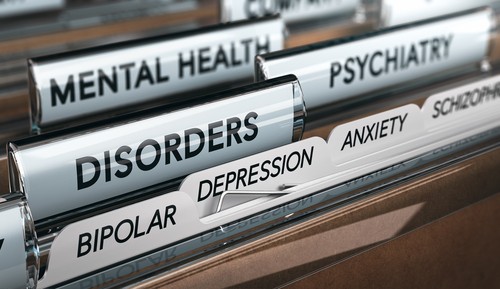Mental Ilnesses that Qualify for Social Security Disability Benefits
Mental health is in the forefront of todays society. And rightfully so. A person with a mental impairment is a person who is substantially limited in major life activities. There are numerous mental illnesses that can qualify for Social Security disability benefits but unfortunately mental health illness related claims are often denied due to the fact that they are much harder to prove than physical ailments. The national rate of approval overall for initial disability claims is 36 percent. This means that 64 percent of claims are turned down. Below are some reasons why mental illness disability claims are denied and how you can greatly improve your chances of winning your case by filing an appeal.
There is a broad criteria in mind for mental illnesses which Social Security recognizes and falls under the categories such as:
- Organic disorders i.e. delirium, dementia and Alzheimer’s disease
- Psychotic disorders i.e. schizophrenia and paranoia
- Affective disorders i.e. mood disorders, depression, bipolar disorder
- Mental retardation i.e. learning disorders
- Anxiety related disorders i.e. panic attacks, phobias
- Somatoform disorders i.e. mental illness of no discernable cause
- Substance abuse/addiction i.e. alcoholism and drug abuse
- Personality disorders i.e. obsessive compulsive and passive aggressive disorder
Diagnosing these disorders however, can be somewhat subjective, difficult and time consuming to prove to the SSA that your condition qualifies you as disabled enough to render you unable to perform gainful employment.
Compared with a physical condition which is easy to prove with lab tests such as blood work, x-rays and other diagnostic tests. In contrast anxiety, for instance does not show up visibly on an MRI.
The SSA therefore must have a long history from prior Physicians, health workers, family and friends in order to evaluate and diagnose the severity for your particular mental disorder(s).
These would also have to include:
- Written testimonies from your therapist or counselor/psychiatrist
- Case files
- Mental health/physical records
- Memory tests
- Letters from close friends, family members, co-workers that discuss how your mental illness is impairing your ability to function
- Your own personal account to an appointed specialist
It’s also important to note that in order for the SSA to consider you disabled you must stick with the treatment protocols that your doctor is prescribing, i.e. prescription, therapy, counseling regiments on a regular basis.
If you find you’re receiving poor or inadequate care for your mental health illness it is vital that you maintain thorough notes and seek out a new provider or get a second opinion.
Unfortunately there is a still a huge cultural bias and stigma surrounding those who suffer from mental health illness. Millions of Americans live with chronic mental illness that make life a challenge on a daily basis. Often times there are some Social Security examiners who may share this bias and feel that the condition is not severe enough or ‘real’ enough for it to be disabling enough to keep the person from working. This prejudice towards mental illness is still a hurdle that many claimants run into.
How can I appeal my claim if I’m turned down?
If you get turned down for social security benefits don’t despair. There are a few things you can do to increase your chances of winning an appeal.
The first thing you must do is:
- File your appeal right away.
- If you’re denied benefits initially, don’t wait. File the appeal as soon as possible. You have within 60 days of the date. It’s called a ‘Request for Reconsideration’.
- Request a hearing before an Administrative Law Judge
- In this phase your claim will be reviewed a second time. If you are denied again, you must file a request for an Administrative Law Judge hearing to appeal.
- Your request review is heard by the Appeals Council
- If your claim is denied at the ALJ hearing stage, then you have the right to appeal to Social Security’s Appeals Council. The Appeals Council reviews hearing decisions, and has the power to ‘remand’ or send cases back to judges when they make mistakes. It can also reverse decisions. If your claim is still denied you can even file an appeal in Federal Court.
- The best the to do is to not go it alone and get help!
Getting representation is the best thing you can do. This can save you time, energy and anguish!
When your mental illness is preventing you from working, getting approved for disability is your top priority. Monthly disability benefits can help you and your family stay afloat.
Call The Disability Champions today for a free evaluation to help win your case.


Recent Comments